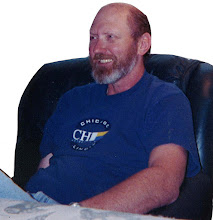Oregon Decriminalizes Some Hard Drug Possession
Data: Oregon House Bill 2355 – https://legiscan.com/OR/text/HB2355/2017
-- that stiffens regulations on traffic stops and racial
profiling – also reduces the penalty for first offense possession of small
amounts of Schedule 1 drugs such as methadone,
oxycodone, heroin, ecstasy, cocaine, and methamphetamine. The bill reduces
penalties from a felony to a misdemeanor. Oregon Gov. Kate Brown's signed the bill on
Aug. 15.
Pro: The bill was filed at the request of Oregon Attorney General Ellen Rosenblum, who said in a release that the bill implements anti-profiling
laws and reduces penalties for lower-level drug offenders. Oregon Rep. Mitch Greenlick (D.) – who is also
a pharmacist and former Kaiser Foundation vice president of researchhttps://ballotpedia.org/Mitch_Greenlick said in a Washington Free Beacon article http://freebeacon.com/issues/oregon-reduce-hard-drug-convictions/ "We've
got to treat people, not put them in prison It would be like putting them in
the state penitentiary for having diabetes. … This is a chronic brain disorder
and it needs to be treated this way."." The American Civil Liberties Union (ACLU) also supported the
bill and said in a release https://www.aclu-or.org/en/legislation/defelonize-drug-possession-hb-2355 that the war on drugs has failed, and law enforcement money can
be better spent elsewhere. It also says that minorities are unfairly targeted,
and treatment, education and rehabilitation are the answers.
Con: The majority of
Republicans in both House and Senate voted against the bill as well as some
Democrats. Democrat Sen. Betsy Johnson said the bill was misguided and called
it a "hug-a thug-policy." http://www.oregonlive.com/today/index.ssf/2017/07/oregon_bill_will_reduce_punish.html
Analysis:
1. Statement: The war on drugs has failed: One could argue that the war wasn't lost, it was subverted by
pharmaceutical firms. Bayer invented heroin as a supposedly non-addictive
treatment for morphine addiction. Doctors then backed off use of addictive
opioids for pain relief except in the most extreme cases. Then Purdue
pharmaceuticals in 1996 marketed a timed-release tablet that the company said
was a non-addictive opioid called OxyContin https://www.theatlantic.com/business/archive/2017/06/lawsuit-pharmaceutical-companies-opioids/529020/ which came into use for all sorts of minor
pains. Predictably, OxyContin acted like the opioid it was and hooked thousands
of people, then spread illegally into the society and ushered in what is now
officially called "The Opioid Crisis.". Similarly LSD was synthesized
by a chemist at Sandoz Pharmaceuticals, was tested by the CIA at American
Universities http://healthland.time.com/2012/03/23/the-legacy-of-the-cias-secret-lsd-experiments-on-america/,
and spread into society pushed by Professor Timothy Leary and friends. Oregon was a leader in stopping methamphetamine use by passing a
law in 2006 requiring a prescription to obtain the pseudoephedrine precursor. http://www.oregonlive.com/politics/index.ssf/2012/07/oregons_meth_law_praised_as_so.html Meth busts dropped in
Oregon and Mississippi which had a similar law. But other states – under heavy lobbying
by the pharmaceutical industry – failed to pass similar laws, and meth use rose
again, as the precursors and meth itself were smuggled in from other states and
Mexico. So why would pharmaceutical firms risk association with illicit drug
use, addiction, crime, degradation and death? Because now that "the war on
drugs has failed," and our prisons are full, "treatment" is
advocated, states like Oregon are legalizing marijuana and reducing penalties
for opioid use, and billions of dollars are going to treat opioid addiction.
How is opioid addiction treated? With something called Medication Assisted
Treatment (MAT). https://www.statnews.com/2017/05/15/medication-assisted-treatment-what-we-know/ MAT takes people
addicted to heroin, for example, and switches them to legal pharmaceutical
products such as methadone, buprenorphine, https://www.samhsa.gov/medication-assisted-treatment/treatment/buprenorphine and naltrexone https://www.samhsa.gov/medication-assisted-treatment/treatment/naltrexone. The National Institute for Drug Abuse says addiction is a chronic
disease which needs long-term care https://www.drugabuse.gov/publications/drugfacts/treatment-approaches-drug-addiction so the recovering addict may need these prescriptions for the
rest of his or her life. And big pharma also markets another drug to use in
cases of opioid overdose, called Naloxone (Also called Narcan and Evzio). http://www.webmd.com/mental-health/addiction/drug-overdose-naloxone#1 A supply should be carried by thousands of first responders,
doctors, and family members of addicts or those on opioid pain relievers. The
cost of a dose just jumped from $575 a dose to about $4,500 according to Wired Magazine, and has a shelf life of
18-24 months. https://www.wired.com/2017/02/575-life-saving-drug-jump-4500-blame-perverse-system/ http://www.nchrc.org/programs-and-services/naloxone-101/
2.
Statement: "[Jailing
drug addicts] would be like putting
them in the state penitentiary for having diabetes." See the above item on "medication assisted treatment,"
by pharmaceuticals. And the statement is uttered by a pharmacist. Many groups
see addiction as a disease, including the American Medical Association and the
American Society of Addiction Medicine https://www.centeronaddiction.org/what-addiction/addiction-disease The addict is not responsible for his addiction, says this
theory, as it is changes in the brain and DNA which create addiction. It's all
body, and body is what doctors treat. Even psychiatrists think addiction,
depression, schizophrenia etc. are all diseases, thus the terms "mental
health" and "mental illness." even though there are no
scientific tests for disorders such as "oppositional defiant
disorder" "ADHD" "obsessive compulsive disorder" and
so on to the tune of some 300 different so-called diseases catalogued in the
Diagnostic and Statistical Manual used by psychiatrists to bill for insurance
payments. There are tests for diabetes, but psychiatric "disorders"
are simply voted on by psychiatrists from time to time, so that pharmaceutical
companies can get busy and invent new pills. And thus we have speed given
legally to children for not sitting still, the definition of autism expanded
into "autism spectrum disorder" to scoop up millions more children
and put them on expensive pharmaceuticals, and mental health given parity with
physical health in the Affordable Care Act, to secure the funding for all this
pharma. So the war on drugs has not been lost, it has been more
clearly defined as a battle between pharmaceutical profits and the peace and
security of American neighborhoods and families. And that is a battle we cannot
lose.
Click here for more about Wayne Hanson
Click here for more about Wayne Hanson


No comments:
Post a Comment